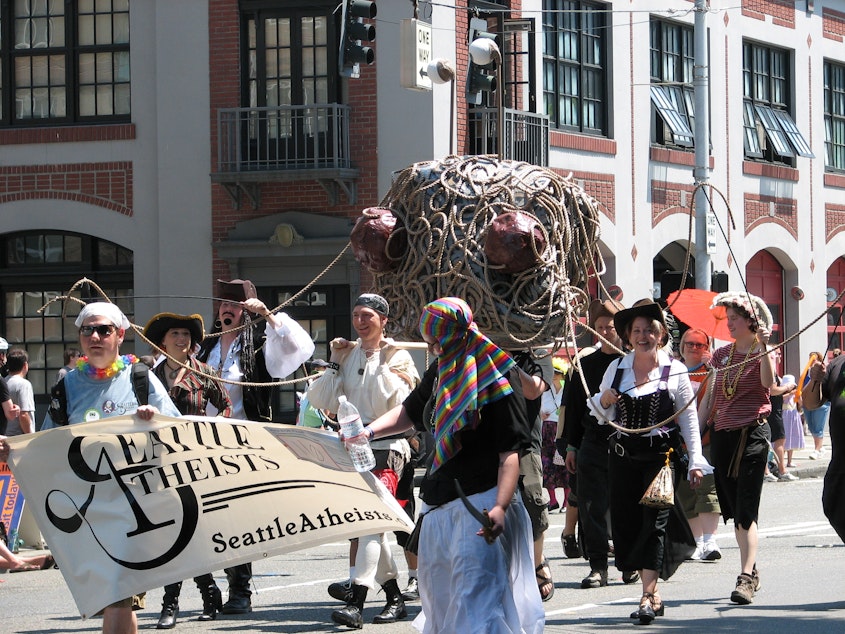Don't Believe In God? Move To Seattle

If you don’t believe in God, Seattle may be the city for you.
Ten percent of Seattle residents call themselves atheists – the highest rate among the largest metro areas in the U.S., according to a new survey from the Pew Research Center.
James Wellman, chair of the comparative religion department at the University of Washington, told KUOW’s Marcie Sillman that’s in part because people come here to find cultural freedom.
“When people come to the Northwest, they come across the Cascades and all their old affiliations just drop out the door,” Wellman said. “I think they find a bit of paradise – you can think what you want, you can do what you want, you can make of your life what you want. Old affiliations, especially family affiliations, aren’t around to bring you back into the fold.”
That doesn’t mean that Seattle is a godless city, Wellman said.
Sponsored
“I think what you have is the secular types who say, in a sense, to hell with organized religion,” he said. “But they turn to spirituality of some kind.
That so many people aren’t religious can feed on itself. He said that in the South or the Midwest, a common question is, “Where do you go to church?” That’s a question you wouldn’t necessarily hear in the Seattle area.
The Pew study indicates that more adults identifying with a religion is growing across the U.S. – and that fewer adults identify as traditional Christian. Wellman said that may have to do with the recession.
“Economic recessions really have a deep impact on people’s ability to trust, and religion is based on trust and faith. And so when the whole country feels out of sorts with itself, there’s less trust in institutions as well.”
Still, 52 percent of Seattle residents identify as Christian. Twenty-three percent are evangelical Christians, and 10 percent are mainline Protestants.
Sponsored
Among non-Christian faiths, Jews make up 1 percent of the population, and Muslims less than 1 percent.
Twenty-two percent identified as “nothing in particular.”
Correction 5/29/2015, 10 a.m.: A previous version of this story incorrectly stated what percentage of Seattleites identify as evangelical Christian.

